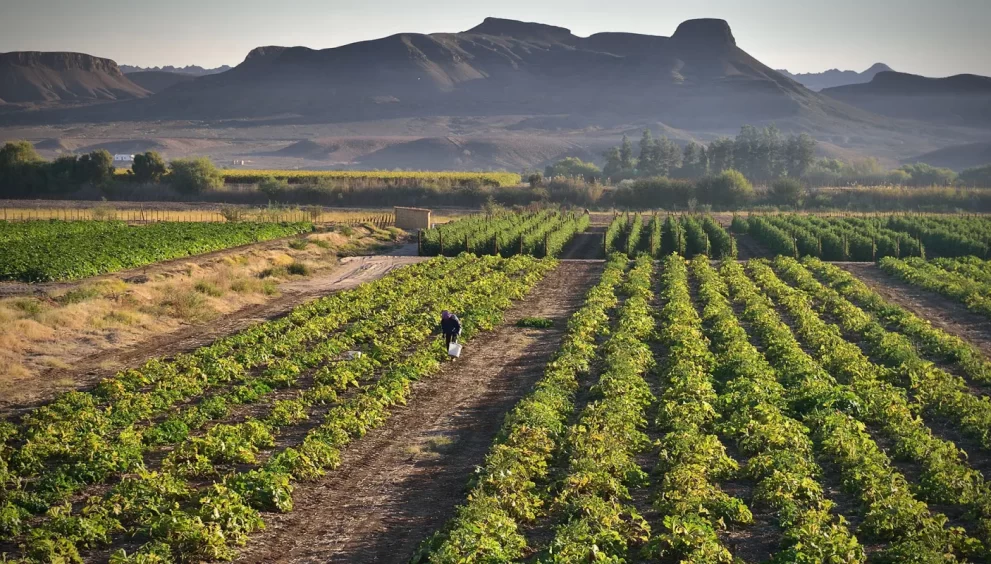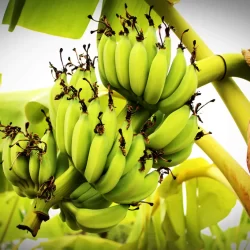DURBAN – Hope mingled with stark reality in Durban this past Friday as South Africa played host to the G20 agriculture working group’s food security task force. Against the backdrop of KwaZulu-Natal’s lush landscape, world leaders and agricultural gurus grappled with the gnawing global imbalance in access to food, with a fervent plea for policies and investments that empower the very farmers struggling to feed their own communities.
KwaZulu-Natal’s MEC for agriculture and rural development, Thembeni kaMadlopha-Mthethwa, laid bare the nation’s aspirations, voicing the hope that G20 deliberations would “cascade down to our grassroots level, our smallholder and commercial farmers, and those involved in cooperatives and family farming.” Her words underscored a yearning for tangible change, for solutions that would finally make agriculture in South Africa “efficient, productive, and sustainable.”
The urgency of the discussions was thrown into sharp relief by grim statistics. A recent Human Sciences Research Council survey painted a distressing picture, revealing that a staggering 20 million South Africans are teetering on the brink of severe food insecurity. Even more concerning, a chilling 63% of households are battling food insecurity, with 17% facing critical undernourishment. Adding to the weight of the challenge, a UNICEF report from last year identified South Africa as one of the 20 nations shouldering a massive 65% of the world’s severe child food poverty.
“We are aware of the number of people that sometimes go hungry,” admitted MEC Mthethwa during a frank media briefing. Yet, she offered a glimmer of hope, stating that the G20 engagement was birthing “policies that are looking at that directly.” She outlined her department’s collaborative efforts with national counterparts and municipalities to both bolster existing programmes and forge new pathways to tackle the hunger crisis head-on. “As a team from the national, provincial, and district levels up to the municipality, we are going to be identifying the key areas where hunger is a problem, and we will start there,” she affirmed.
Beyond immediate relief, the MEC painted a vision of a revitalized agricultural sector, one that captivates the next generation. Her department has issued a clarion call to make agriculture “cool” and “fashionable,” actively seeking to lure young minds into farming projects and agricultural studies. “It’s a call purposefully directed to the youth to rise above and be counted in the agricultural value chain, as we intend not to leave anyone behind, including our most vulnerable groups in our diversified communities,” she declared. “Agriculture is not for the old persons only or those who take it up because they have nothing else to do. Agriculture is a rewarding and fulfilling profession for people of all ages, including older and young people.”
This drive to inject youthful energy into the sector is coupled with a grassroots initiative encouraging communities and even institutions like schools and clinics to transform vacant land into productive food gardens—a call that has apparently been met with enthusiasm, even within the hallowed walls of places of worship.
Dipepeneneng Serage, the national department of agriculture’s deputy director general for biosecurity and natural resources, brought a stark legal perspective to the debate. He pointed to the Constitution’s guarantee of access to water and food for all citizens, a right that, he conceded, is currently not a reality for many. “We are struggling with social grants. Are we ensuring that social grants lead to children having food before they sleep? That’s the policy challenge we are facing,” Serage stated plainly.
He stressed the critical need to understand the nation’s demographics—knowing who lives where, their income levels, and their access to land. Reflecting on a bygone era, Serage lamented the shift from self-sufficiency to reliance on commerce-driven food systems. “Most people growing up in villages had land… But over time, commerce got in and made sure that you had to buy food. I grew up having chickens and eggs from chickens, milk, and goats, but, over time, commerce came and introduced us to instant food. We need to go back and check each ward.”
Serage advocated for a return to the rural wisdom of cultivating the land, moving away from what he termed the unsustainable cycle of “financial handouts and food parcels” that democracy had inadvertently fostered. He revealed that the national government is actively crafting policies and laws to guide municipalities and provinces in empowering every household to produce at least some of their own food, drawing on traditional knowledge.
Adding another layer to the complex tapestry of food security, eThekwini mayor Cyril Xaba highlighted the challenges posed by rapid urbanization. The city’s rural hinterland, comprising a significant 60% of the metro, is losing residents to urban centers in search of economic opportunities, leading to the proliferation of at least 590 informal settlements.
“Immigration into the city is causing serious challenges. We need to grow the economy to create jobs for the people who come into the city,” Xaba explained. The influx is straining the city’s resources, particularly water and electricity. In response, eThekwini is turning to agriculture as a potential anchor to keep people rooted in rural areas.
The metro has invested in agricultural programs targeting small, medium, and micro enterprises in livestock, fish farming, and crop production, championing climate-smart agriculture with a strong emphasis on empowering youth and women. However, Mayor Xaba stressed that government initiatives alone are not enough. He made a compelling plea for the private sector, especially financial institutions, to step up and provide the crucial capital that remains a significant hurdle for aspiring farmers. “It is our view that food security is key to ensuring stability and economic prosperity,” he asserted.
For eThekwini, the G20 meeting served as a vital platform to glean best practices from global counterparts, seeking insights into how other nations are tackling the deep-seated issues of poverty and inequality that perpetuate food insecurity. The hope in Durban was palpable—that through collaborative global action, the tide could finally turn for the millions facing hunger, not just in South Africa, but across the world.




